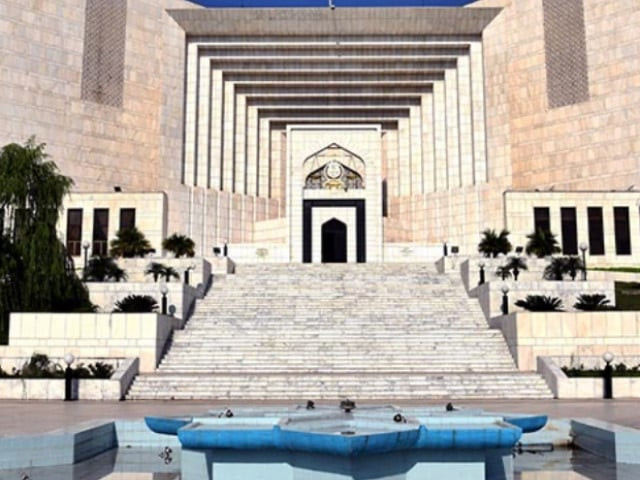Govt gets hands in judicial pie with appointments
PML-N, PPP find influence in judicial nominations as debate on political affiliations intensifies

Unlike in the past, the ruling political parties have managed to carve out a major slice of influence in the nomination process for superior court judges.
Chief Justice of Pakistan (CJP) Yahya Afridi has sum-moned a meeting of the Judicial Commission of Pakistan (JCP) on December 6 to consider the nomina-tions for additional judges of the Peshawar High Court (PHC) and Sindh High Court (SHC).
The SHC chief justice has recommended 12 names, while the PHC has proposed 9 names for new appointments.
Similarly, CJP Afridi has also called a JCP meeting to approve nominations for seven additional judges of the Lahore High Court (LHC).
Upon reviewing the list of nominees recommended for these three high courts, it is clear that the ruling political parties, namely Pakistan Muslim League-Nawaz (PML-N) and Pakistan Peoples Party (PPP), have managed to secure some representation in the judicial appointments.
Some of the nominees either have affiliations with
these parties or strong ties with senior lawyers associated with PPP and PML-N.
The development follows the 26th Constitutional Amendment, which expanded the role of the ruling parties in the appointment of judges.
Even the nomination of judges for constitutional benches in the Supreme Court and the Sindh High Court has been influenced by executive members during JCP meetings.
After the restoration of judges in March 2009, executive influence over judicial appointments de-creased, with the superior judiciary taking a dominant role in the process.
The passage of the 19th Constitutional Amendment, which granted more representation to the judiciary in the JCP, had sparked criticism from the executive, the law minister, the ACP, and bar representatives.
Despite dissenting opinions from the law minister, ACP, and bar representatives, the majority of JCP members, who were from the judiciary, continued to approve judicial nominations.
During the tenure of former CJP Iftikhar Muhammad Chaudhry, both the executive and the superior bars raised serious concerns about the new judicial appointment process.
The superior judiciary it-self framed the JCP Rules of 2010, granting the CJP unfettered discretionary powers regarding judicial appointments. Senior lawyers argued that the SC, in the Muneer Bhatti case, had made the parliamentary committee on judicial appointments ineffective.
There are also allegations that, during CJP Iftikhar's tenure, the competency of judges was often over-looked, with appointments based on favouritism and nepotism. Those who had played an active role in the lawyers' movement were given preferential treatment during the appointment process.
There was a perception that lawyers who had been at the forefront of the movement were able to appoint their juniors and chamber fellows to judicial positions.
Even when the opinions of the law minister, ACP, and bar representatives were ignored in the appointment process, they announced a boycott of JCP meetings. They called for the amendment of the JCP Rules of 2010 to eliminate the discretionary powers of the CJP in judicial appointments.
The boycott continued through to the end of the
Pakistan Peoples Party government's tenure.
The bars remained critical of judicial appointments during the tenures of former CJPs Nasir-ul-Mulk, Anwar Zaheer Jamali, and Asif Saeed Khosa. Special committees were formed to con-sider proposed amendments to the JCP Rules of 2010 by former CJPs, but these efforts yielded no results.
In September 2020, the Pakistan Bar Council organised an All-Political Parties Conference to address concerns about the judicial appointment process . All major political parties, except Pakistan Tehreek-e-Insaf (PTI), supported the bars' concerns regarding the current procedure.
Now, the debate has taken a new turn, with voices rising on whether lawyers with political affiliations should be considered for judicial appointments.
A lawyer argued that "politically opinionated" lawyers should be given a seat at the table, asserting that no judge can be truly "neutral".
"Democratically sensitive" judges, he stressed, should be the ones appointed to superior courts.
As it stands, it's clear that both ruling parties have managed to secure a piece of the judicial pie, leaving no chief justice in a position to sidestep the influence of the executive and parliamentary representatives in the JCP before sending nominations for approval.



















COMMENTS
Comments are moderated and generally will be posted if they are on-topic and not abusive.
For more information, please see our Comments FAQ